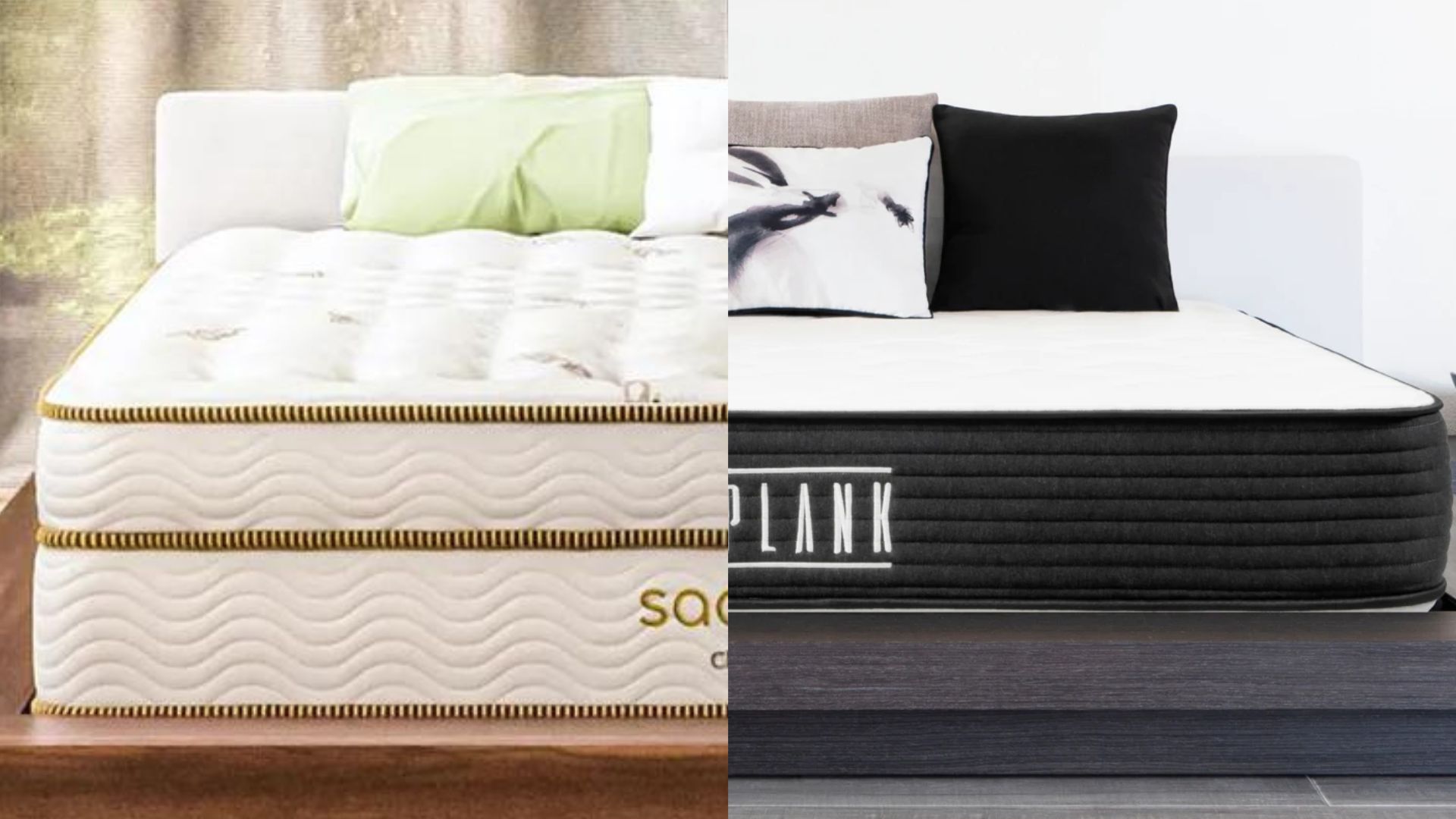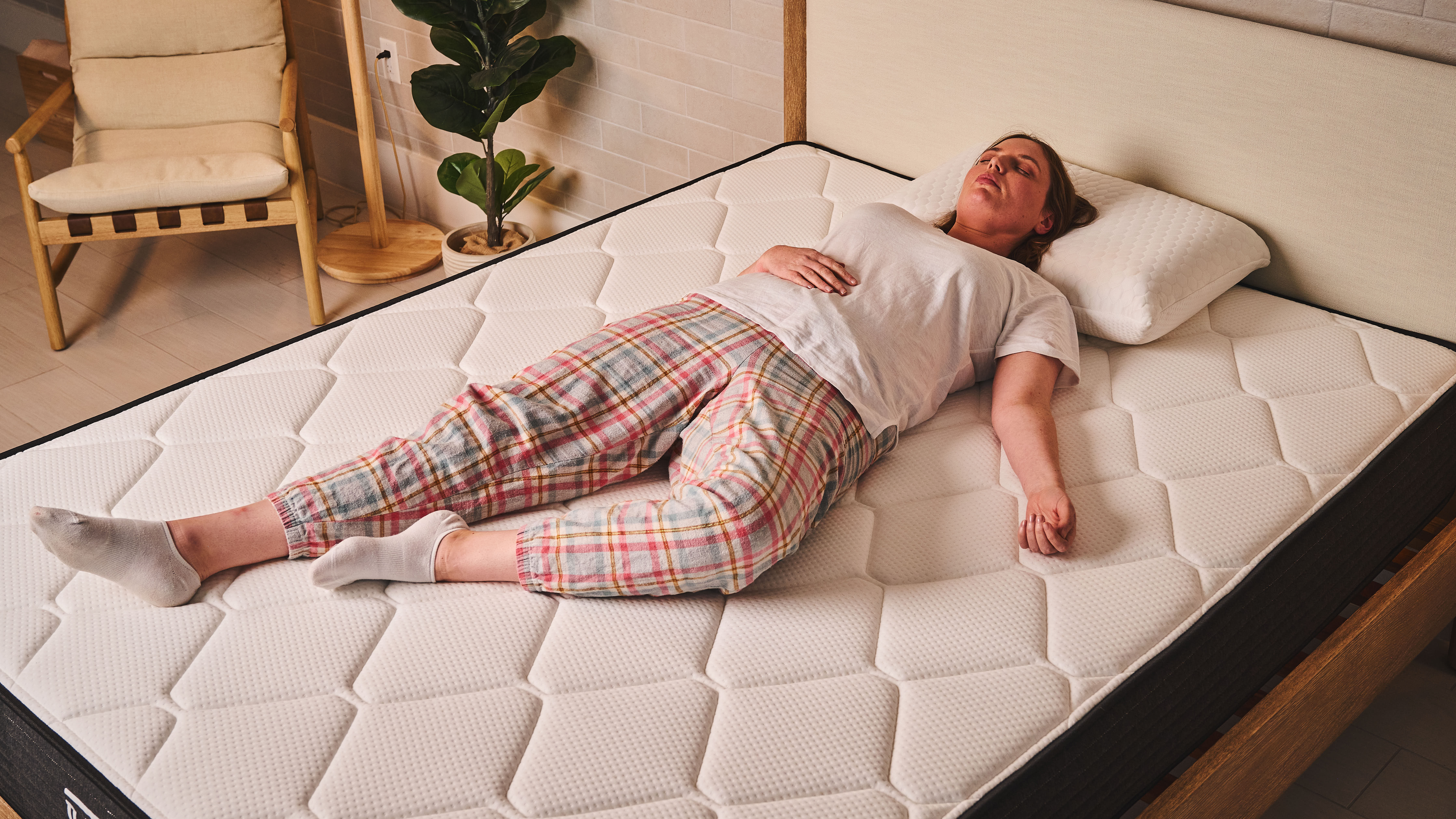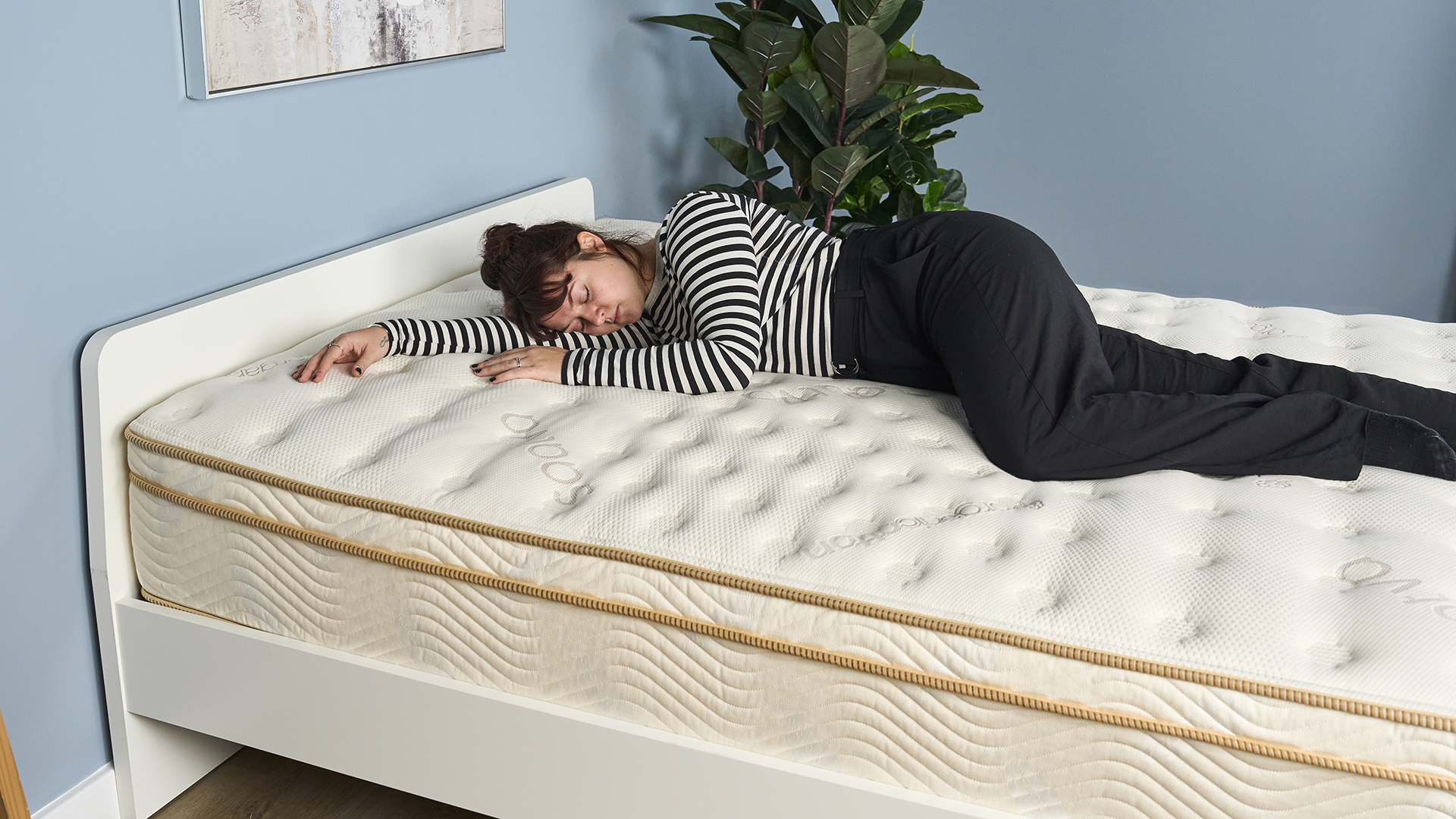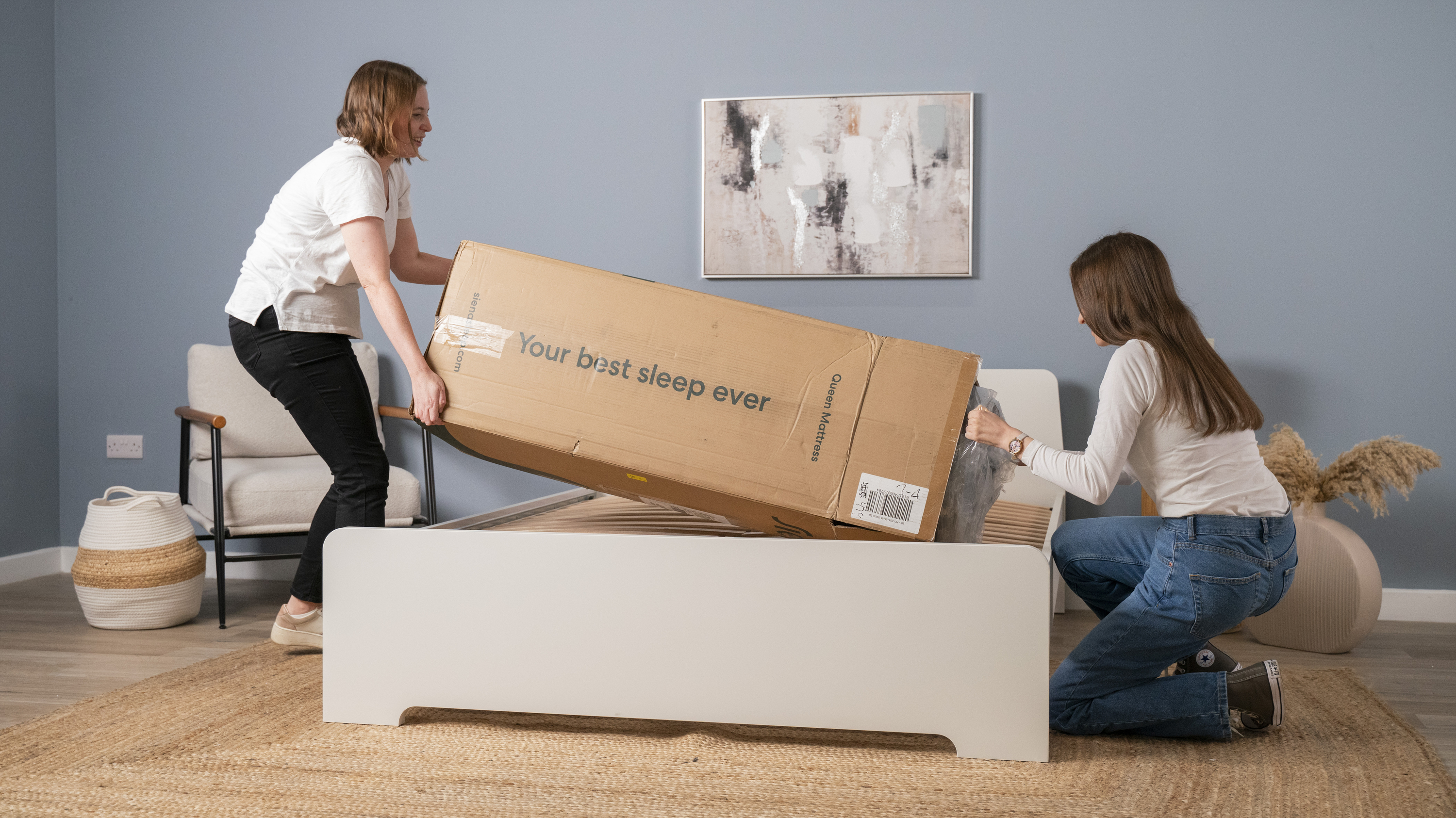
The firmness level you choose for your mattress can transform your sleep for better or worse. In our plush mattress vs firm mattress showdown, we'll be breaking down the pros and cons of each so you can choose the right comfort level for your needs.
Our guide to the best mattresses of 2025 spans all firmness levels — and some beds even allow you to choose how hard or soft you want the surface to feel. That said, firmness is subjective and there's no standard across brands. Always purchase a mattress with a home trial included.
Once you've decided whether you need a plush or firm mattress — or maybe even something in between — you can start shopping. Memorial Day mattress sales will be kicking off in a few weeks, giving you a chance to save more money than you normally would.
What is a plush mattress?
A plush mattress refers to any mattress with a rating below 5 on the 10-point firmness scale. Key characteristics include a quilted pillow top, lots of comfort layers, and soft, cushioning materials such as memory foam. A (good) plush mattress will still provide sufficient support, although it's usually ideal for side sleepers and those who weigh under 130lbs.
What is a firm mattress?
A firm mattress is any mattress with rating above an 8 on the 10-point firmness scale. Contouring is very minimal as the focus is on support. Typically, a firm mattress will suit stomach sleepers and heavier back sleepers. Contrary to popular belief, a firm mattress is not always recommended for back pain.
Plush queen mattress vs firm queen mattress: Comfort and support

- Plush mattresses have that sink-in sensation
- Firm mattresses offer more resistance
- Both provide support and contouring, but at different levels
Plush mattresses deliver body-hugging comfort to help ease pressure points. They appeal to sleepers who like to sink into the surface of their bed.
Some of the best mattresses for side sleepers are plush models that cushion the shoulders, hips, and knees while maintaining proper alignment. (Remember that a soft mattress can still be supportive.)
Lighter sleepers (under 130lbs) will also find that they won't have to adjust or try to "break in" a plush mattress, as it'll already be soft enough for them to have an impact on it.
Firm mattresses emphasize support and cater to people who like to sleep on top of their beds rather than in them. They'll still offer pressure relief, but to a much shallower degree.
The best mattresses for stomach sleepers are often firm because they keep the hips level with the rest of the body. Some back sleepers may also like the feel of a harder surface.
The best mattresses for heavy people use sturdy coils and extra-dense foams to accommodate higher weights — and they usually skew firm, as well.
Is a firm mattress better than a plush mattress for back pain?
A good mattress for back pain will be supportive of your weight and sleep position while providing sufficient pressure relief to the lumbar and promoting a neutral spine.
According to experts we've consulted on this topic, it really comes down to the individual. Although most people will fare well with a medium-firm to firm mattress to alleviate back pain, some sleepers can go with a plusher bed and still find relief.
A mattress with targeted lumbar support can help sleepers with back pain, regardless of the firmness of the surface.

Plush mattress vs firm mattress: Performance
- Firm mattresses offer greater ease of movement and stronger edges
- Plush mattresses will generally isolate motion better
- The less you sink into a mattress, the less likely you are to overheat
If you're one to flip-flop at night, you'll need to consider ease of movement. The surface of a firm mattress will offer more resistance, allowing you to switch positions or get up without feeling like your mattress is swallowing you.
To that end, motion isolation will usually be better with a plush mattress with slow-moving, motion-absorbing materials. However, there are exceptions; the DreamCloud Hybrid Mattress has a firmer feel, but in our tests, it absorbed movements well.
The edges will be stronger on a firm mattress all around, but a reinforced perimeter of heavier coils or denser foam can boost that support, even for a softer mattress.
As for temperature control, you're more likely to feel the heat from a plush bed since you'll be sinking right into it. If night sweats are a major problem, consider a cooling mattress made with specialized materials designed to wick away heat and moisture..
Plush mattress vs firm mattress: Durability

- Build quality is a greater indicator of longevity than firmness
- That said, plush pillow-top mattresses may degrade faster
- Always read the terms of your mattress warranty
Your average mattress-in-a-box will last six to 10 years. While you may expect a firm mattress to outlast a plush one, the quality of materials — along with how well you care for the mattress — will be a greater indicator of how many years you can expect to get out of it.
However, pillow-top mattresses are prone to sagging sooner since they bear the brunt of sleepers' movements. Not all pillow-top mattresses are plush, but the effects of wear may be more evident with a softer bed.
The length of a mattress warranty has long been considered a way to gauge longevity, but more brands are now offering warranties for life as they strive to develop longer-lasting components.
Still, it's important to read the finer details to see what's covered and for how long. (Most of these long-term warranties are prorated, meaning you'll need to foot some of the cost for repairs or replacements.)
Plush mattress vs firm mattress: Which to choose
Plush mattresses and firm mattresses have their own advantages, but they also have some drawbacks. Here's how to determine the right type for your sleep needs.
Choose a plush mattress if...
✅ You want cushioned pressure relief: Whether you're a side sleeper or deal with regular aches, a plush mattress will soothe your joints and pressure points.
✅ You share a bed: Plush beds usually use slow-moving memory foam to absorb the movements of a restless partner. Take a look at our guide to the best mattresses for couples.
✅ You're a lightweight sleeper: Mattresses will naturally feel firmer to lighter, petite bodies. A plush mattress should offer just the right amount of tension.
Our top plush mattress deals
Choose a firm mattress if...
✅ You sleep on your stomach: A firm mattress will keep a stomach sleeper's pressure points (i.e. the hips) upright and well-aligned with the spine, preventing lower back pain.
✅ You value ease of movement: With a firm, responsive surface, you'll be able to switch positions more easily. Plus, you're less likely to feel "stuck" in bed when getting up in the morning.
✅ You're of a heavier build: Firm mattresses are generally more accommodating of larger bodies, thanks to the boost in support.
Our top firm mattress deals
What if you need a mattress that's in-between plush and firm?
If you're more of a Goldilocks than a Mama or Papa Bear, a medium-firm mattress will offer a "just right" level of support and contouring. Back and combi sleepers generally do well with this level of firmness. Medium-firm is also a good place to start if you have back pain.







